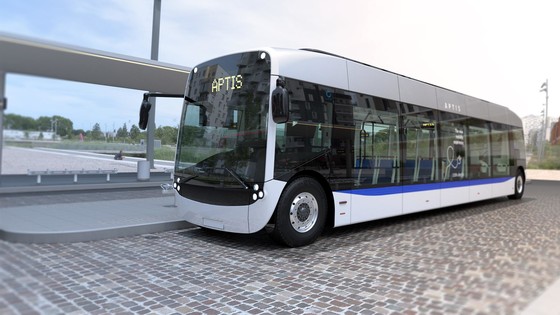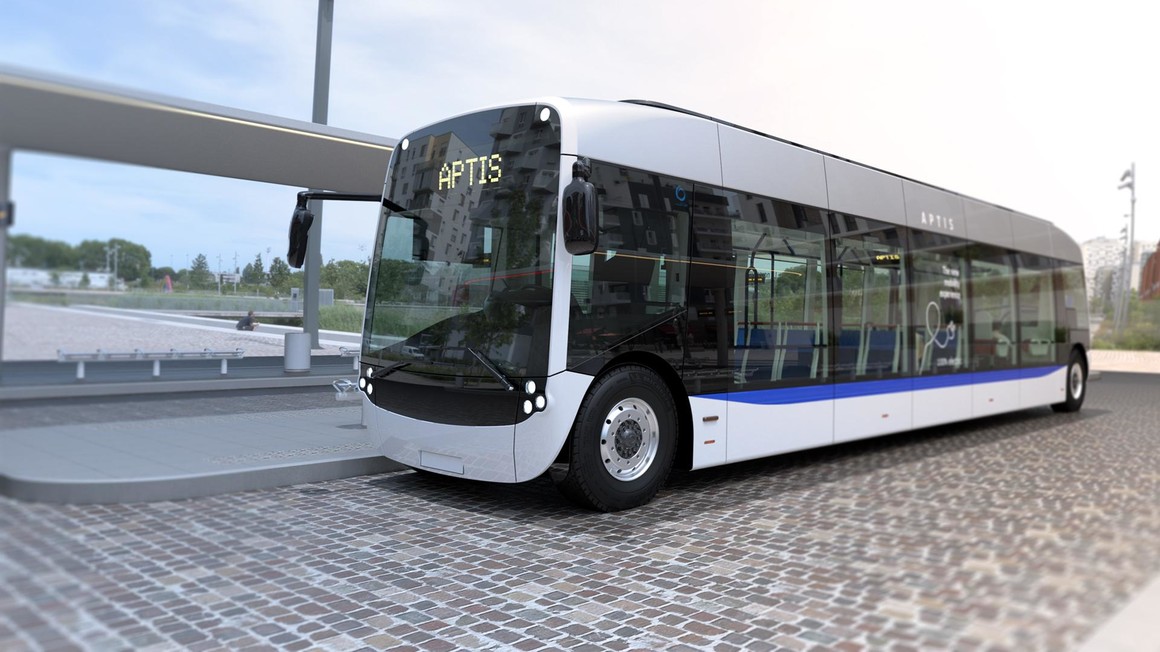
Alstom Aptis chosen by the metropolitan area of Toulon

Press contacts - Southeast France
Fabienne Broccard
Send an email8 July 2019 - Alstom will supply twelve 100% electric Aptis buses to the metropolitan area of Toulon Provence Méditerranée for its Mistral public transport network. The order was placed by Toulon transport operator RMTT via CATP, the French central procurement office for public transport. Delivery of the first of these 12-metre long, 3-door buses is scheduled for the end of 2019, expanding the Toulon metropolitan area’s own fleet of vehicles.
“We are proud of the trust placed in us by the Toulon Provence Méditerranée metropolitan area with the largest order for electric buses in southern France. Aptis has also been chosen to reveal the new visual identity that all Mistral network vehicles will be adopting. This is a great honour for us,” said Jean-Baptiste Eyméoud, Senior Vice President for Alstom in France.
Thanks to its innovative design, Aptis offers an unparalleled passenger experience. Its berthing system for perfect alignment with the pavement, its full low floor and wide double doors allow easy circulation and convenient boarding for people with reduced mobility and prams. Equipped with large bay windows along its entire length, Aptis offers 25% more windows than a standard bus and a rear seating area with panoramic views of the city.
The vehicles requested by Toulon are designed for slow charging, at night at the depot. Aptis is also available for occasional recharging at the end of each line, using ground-based charging solutions (SRS) or charging via pantograph.
Aptis was designed to have an optimised total cost. This is possible thanks to reduced maintenance and operating costs and a longer service life than that of standard buses. The aim for the local authorities, therefore, is to have a total cost equivalent to that of existing standard diesel buses.
Aptis has already been selected by the Strasbourg transport operator CTS, RATP and Ile-de-France Mobilités, as well as by Greater Grenoble and Greater La Rochelle. As of September 2018, it is also referenced by the CATP, for public procurement by local authorities. This referencing allows member authorities to order Aptis vehicles directly and simply from the CATP, as the Toulon metropolitan area has just done, without having to embark on long and costly procedures.
Since the prototype was presented in March 2017, more than 40,000 kilometres have been covered in real operating conditions by four test vehicles in France[1] and in Europe[2]. These trials made it possible to test the features of Aptis, inspired by the tram, in a new context, its insertion performance[3], its capacity for autonomy, and its driving assistance system. Aptis won the Innovation Award at the Busworld trade show in 2017. It also received the official certificate Origine France Garantie in January 2019. This certificate guarantees that more than 60% of Aptis' added value is French.
The manufacturing and testing will be carried out at Alstom's two sites in Alsace. The Hangenbieten site is responsible for manufacturing the end modules (driver's cabin and rear seating area); the manufacture of the central passenger module, final assembly and tests will be carried out at the Reichshoffen site. This plan will enable serial production from the third quarter of 2019, drawing on the expertise of the teams and using the production facilities and surfaces available on each site.
Five other Alstom sites in France are involved in the design and manufacture of Aptis: Saint-Ouen for the system integration, Tarbes for the traction, Ornans for the motors and Villeurbanne for the electronic components of the traction chain. Finally, Alstom’s site in Vitrolles is developing one of the charging solutions (SRS).
[1] Paris (RATP lines 21 and 147), Lyon, Strasbourg, Marseille, La Rochelle, Nantes, Le Mans, Orléans, Versailles, Lourdes, Toulon, Tarbes, Grenoble, Montpellier and Nice.
[2] Belgium, Germany, the Netherlands, Spain and Italy.
[3] Optimised use of surface area in turns (-25% compared to a conventional bus)


